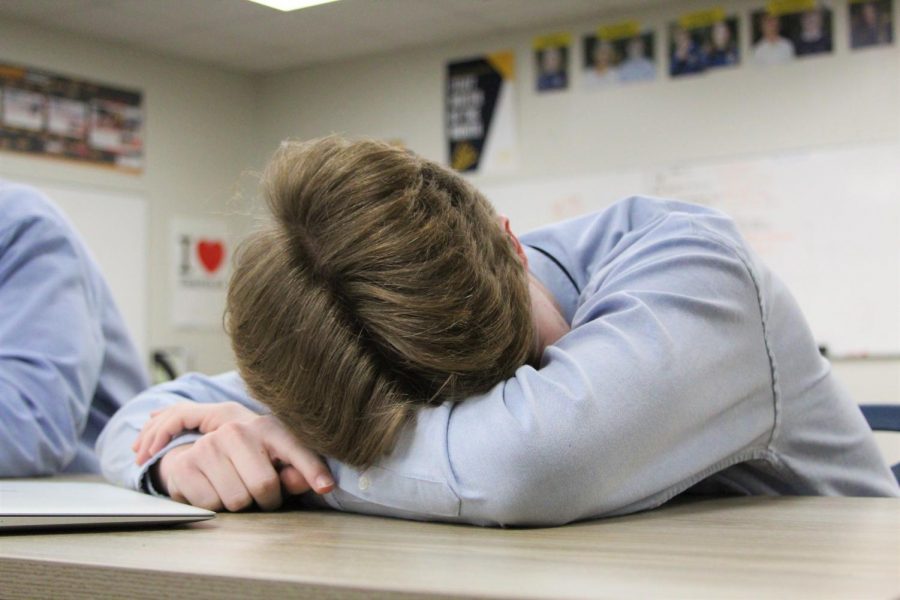Sleep deprivation is more harmful than we think
Trying not to fall asleep in class is a common battle for many high school students. Our poor sleep habits may be even more detrimental to our long-term health than we realize.
Balancing school, athletics, and your social life on a daily basis can be challenging, especially when battling the most common enemy among teens: lack of sleep.
While many argue that constant sleep deprivation is an unavoidable part of life, the consequences are detrimental and unhealthy, including lower grades, mood swings, and poor performance on the court or field. According to SleepFoundation.org, only 15% of teens reported sleeping almost 8 1/2 hours, which is the average amount of sleep recommended for teens by most doctors.
Sitting in class all day and taking notes is tough when you can barely keep your eyes open. According to WebMD, your brain is not able to retain memories when you don’t sleep enough, which makes school more difficult than it already is.
“School is so much harder when I can barely even keep my eyes open during class,” junior Nicholas Berretta said, echoing the thoughts of most students.
Not only are teenagers concerned with grades, but many also worry about how they look, and a lack of sleep doesn’t help with that, either. Fewer hours of rest can lead to an irregular appetite, resulting in weight fluctuation over.time, and it can cause lines on your skin and dark, baggy circles under your eyes.
Not sleeping enough can not only affect your long-term health, but it can also affect your chances of getting into a car crash. The Centers for Disease Control states that drowsy driving is responsible for 72,000 crashes, 44,000 injuries, and 800 deaths per year. These statistics are frightening but can easily be avoided by making sure to get a good night of sleep.
Although there are many effects of sleep loss, there are many solutions that can help fight against it as well. Getting 8 1/2 hours of sleep seems difficult but can be achieved through making a bedtime schedule and avoiding caffeine before you go to bed. Try not to sweat or increase your heart rate prior to going to bed and stay on the same schedule before bedtime, including when you take a shower and when you do homework.
Sophomore Emilio Martinez said, “When I get enough sleep it makes school easier, and I just feel much better overall.”
Ultimately, there are more benefits to getting enough sleep than any reason you have for staying up way too late. Healthy amounts of sleep can improve your memory throughout the day and help improve your grades. Also, it can lower your stress levels, thereby decreasing the chance of depression in your life and even help you live longer.A good night of sleep can increase alertness and help athletes perform better as well. Overall, sufficient sleep helps you to live a healthy and happier life.











